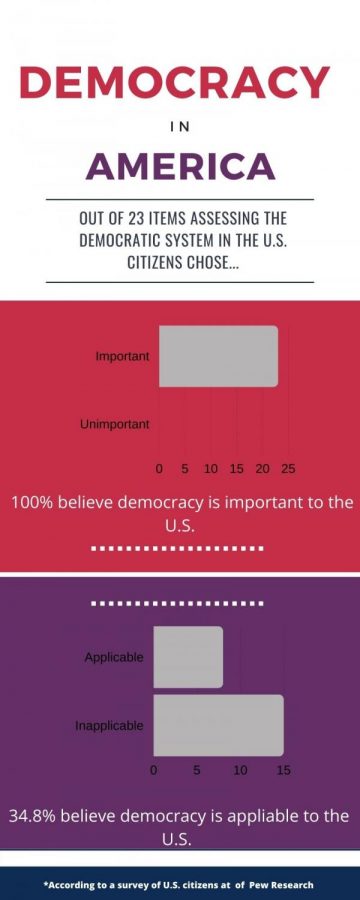Bipartisan system is outdated
October 30, 2020
In 1796, before the election of the second U.S. president the bipartisan system, also known as the two-party system, was created. Initially, it was only meant to be used in more controversial elections, but political parties have evolved significantly since then with changes in names and shared values. One feature of the system that has been apparent from the beginning is the animosity between the two parties.
“When you support a certain party, people think they can assume everything about you,” junior Isis Richards said. “I think the bipartisan system has become something that divides us rather than connects us as a country.”
The bipartisan system allows voters to choose candidates who are more likely to align with their beliefs, with democrats focusing on issues such as more accessible healthcare and bridging the gap between the rich and poor, and republicans on immigration and the economy. However, voters have questioned whether the two-party system is truly democratic.
A democracy is a system of government where the true power resides in the hands of its people, most often through elected representatives, yet with only two realistic options for the presidency, not much of a choice is given.
Even with the option of both parties, many are compelled to stay loyal to their party regardless of the candidate’s policies. To combat this, the third party option provides an alternative for voters to expand their knowledge of current affairs.
Most third parties have specific agendas that motivate their candidacy, such as the Green party, which promotes what is known as green politics with their largest issue being environmentalism.
“I think third-parties have basically just become a way to raise awareness for certain issues. Third-party candidates usually have a focus and that brings attention to whatever issue they’re concerned about,” Richards said. “Overall, the bipartisan system has made them seem a bit unimportant.”
Though the influence of third-party candidates has significantly affected elections, either by forcing other candidates to speak on certain issues or winning votes during close elections, their numbers are still small when compared to the Democratic and Republican parties.
The largest third-party is the Libertarian party, with the candidate Gary Johnson receiving only 3.3% of votes in the 2016 presidential election. The third-party’s inability to attract more voters is why it’s often disregarded to the point being called a “wasted vote.”
“Our political system wasn’t designed to be democratic,” history teacher Ross Bosse said. “Remember that during the founding era, the term ‘democracy’ equated to mob rule.”
Although the system has helped guide countless voters to make more informed decisions when casting their votes, the bipartisan system is an outdated structure that has lost its original purpose and pressures citizens to fit into political boxes.
“Unfortunately, [the bipartisan system] has resulted in a lot of Americans distrusting the system and high levels of voter apathy,” Bosse said. “The result is a lower level of knowledge/awareness about politics and a high level of cynicism about politics and voting that is dangerous to a functioning representative democracy that is supposed to be based on consent of the governed.”



